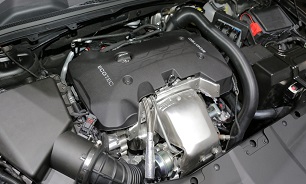PSA Could Phase Out Opel Engines, 3K German Jobs At Risk
Opel platforms will also be gradually retired.

Khodrocar - After reaching the conclusion that PSA’s factories are more productive than Opel’s, the French group – now Europe’s second-largest automaker – says the engines developed in Rüsselsheim are not on a par with the ones from Citroën and Peugeot when it comes to efficiency. For this reason, Opels and Vauxhalls might eventually switch to PSA engines and that could have a direct impact on thousands of employees.
Not only will there be PSA-powered Opels, but these cars are going to ride on the same platforms as the models carrying the lion and double chevron badges. This is more than just gossip as the announcement was made this week by PSA development chief, Gilles Le Borgne, in an interview with Automobilwoche: "We will gradually start using PSA platforms and engines for the Opel model lineup. This won't happen overnight. It will take a few years.”
When asked about whether Opel engines will be phased out, Le Borgne said that nothing has been decided. He went on to specify these will only live on if "substantial increases in efficiency in all areas” will be made, adding Opel could take advantage of PSA’s expertise in engine development. In the long run, existing engines developed by Opel will be axed as PSA wants to avoid having to pay Opel’s former owner, General Motors, for rights and patents: "We want to dispense with any payments for licensing fees as quickly as possible.”
It remains to be seen what will happen to the development and test center in Rüsselsheim where 800 employees have been working since the center was opened about a year ago following an investment of €210 million. Another piece of the puzzle is represented by the fate of the 3,000 Opel engineers involved in projects commissioned by GM.
As you may recall, there were plans for a flagship SUV to slot above the Crossland X and Grandland X, but PSA has decided to pull the plug. The so-called "Insignia SUV” could still see the light of day some years from now, but on a PSA platform.
Not only will there be PSA-powered Opels, but these cars are going to ride on the same platforms as the models carrying the lion and double chevron badges. This is more than just gossip as the announcement was made this week by PSA development chief, Gilles Le Borgne, in an interview with Automobilwoche: "We will gradually start using PSA platforms and engines for the Opel model lineup. This won't happen overnight. It will take a few years.”
When asked about whether Opel engines will be phased out, Le Borgne said that nothing has been decided. He went on to specify these will only live on if "substantial increases in efficiency in all areas” will be made, adding Opel could take advantage of PSA’s expertise in engine development. In the long run, existing engines developed by Opel will be axed as PSA wants to avoid having to pay Opel’s former owner, General Motors, for rights and patents: "We want to dispense with any payments for licensing fees as quickly as possible.”
It remains to be seen what will happen to the development and test center in Rüsselsheim where 800 employees have been working since the center was opened about a year ago following an investment of €210 million. Another piece of the puzzle is represented by the fate of the 3,000 Opel engineers involved in projects commissioned by GM.
As you may recall, there were plans for a flagship SUV to slot above the Crossland X and Grandland X, but PSA has decided to pull the plug. The so-called "Insignia SUV” could still see the light of day some years from now, but on a PSA platform.
Source: Automotive News
Latest News


